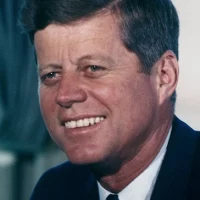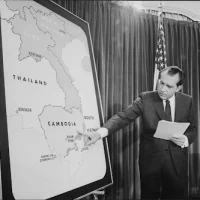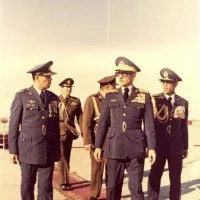Sudan’s long history has been riddled with internal conflict. The United Kingdom and Egypt controlled Sudan for the first half of the twentieth century, then agreed to cede it self-government in 1953. In December 1955, the premier of Sudan declared unilateral independence. The newly independent Republic swiftly fell into a pattern of civil wars, coups… Read More "You Know a Coup is Coming but No One will Listen: Sudan 1964"
Intelligence, Research, God and Country: a Tour in INR
Teresita Schaffer enjoyed an illustrious 30-year career in the Foreign Service, developing a reputation as a leading expert on South Asia and international economics. She served in embassies in Pakistan, India, and Bangladesh and as U.S. Ambassador to Sri Lanka and the Maldives from 1992-1995. After a first tour in Israel, Ms. Schaffer returned to… Read More "Intelligence, Research, God and Country: a Tour in INR"
A Day of Mixed Messages over Iraq’s Invasion of Kuwait
In 1991, the U.S. led a coalition of over 30 nations to force Iraqi troops out of Kuwait after Saddam Hussein ordered the invasion and annexation of the small oil-rich country. Although the invasion caught many throughout the world by surprise, those who had worked in the Middle East had been seeing tensions rise for… Read More "A Day of Mixed Messages over Iraq’s Invasion of Kuwait"
After Fidel Castro ousted Cuban strongman Fulgencio Batista, expropriated American economic assets and developed links with the Soviet Union, President Eisenhower authorized the CIA in March 1960 to develop a plan to overthrow Castro. The agency trained and armed Cuban exiles to carry out the attack. Shortly after his inauguration, John F. Kennedy learned of the invasion plan, concluded… Read More "New President, Bad Plan: the Bay of Pigs Fiasco"
When President Richard Nixon took office in 1969, he and National Security Adviser Henry Kissinger vowed to find a way to end U.S. involvement in Viet Nam quickly and honorably without appearing to cave in to communist pressure. The U.S. launched a secret air campaign, thirteen major military operations, against North Vietnamese bases in Cambodia.… Read More "The U.S. Incursion into Cambodia"
Drogas y Derechos Humanos: Changing U.S. Policy towards Guatemala
In June 1954 the U.S. Central Intelligence Agency, concerned about the threat of communism in Guatemala, assisted in the overthrow of the government led by President Jacobo Arbenz Guzmán. A five-member junta assumed power. Following communications with Guatemala’s Foreign Ministry and consultations with countries in Central America, the U.S. determined that the new Guatemalan government… Read More "Drogas y Derechos Humanos: Changing U.S. Policy towards Guatemala"
Bombing North Vietnam into Accepting Our Concessions: Christmas Bombings, 1972
President Richard Nixon ordered plans for retaliatory bombings of North Vietnam after talks to end the war in Vietnam broke down December 13, 1972. Operation Linebacker II, otherwise known as the “Christmas Bombings,” began December 18 and lasted for two weeks. A total of 741 B-52 sorties were dispatched, dropping 20,000 tons of bombs on… Read More "Bombing North Vietnam into Accepting Our Concessions: Christmas Bombings, 1972"
Regarding Henry, Protecting Nancy – On Security Detail with the Kissingers
Traditionally, Secretaries of State receive a personal protection detail from the State Department’s Diplomatic Security Service (DSS). However, Henry Kissinger eschewed the DS detail in favor of the Secret Service protection he had as the National Security Advisor at the White House. His wife Nancy, a brilliant and glamorous New York aristocrat who spent years… Read More "Regarding Henry, Protecting Nancy – On Security Detail with the Kissingers"
Voyage to the Bottom of the Sea — The CIA Mission to Raise a Soviet Sub
In March 1968, a K-129 Soviet nuclear submarine cruising in the Pacific Ocean mysteriously disappeared from Russian radar. Following an unsuccessful search by the USSR, the United States, using sonic triangulation, secretly located the sunken submarine 1500 miles northwest of Hawaii. An operation was proposed to deploy a ship to recover the wreck of the K-129,… Read More "Voyage to the Bottom of the Sea — The CIA Mission to Raise a Soviet Sub"
Mohammad Reza Pahlavi, the Shah of Iran, departed Tehran on January 16, 1979 to seek medical treatment and to escape growing political unrest in the country he ruled. The Shah had consolidated his hold on power after the 1953 U.S.-backed overthrow of Mohammad Mossadegh and was considered a vital ally to the U.S., a leader… Read More "Finale of the Persian Monarchy and Prelude to the Iranian Revolution"



